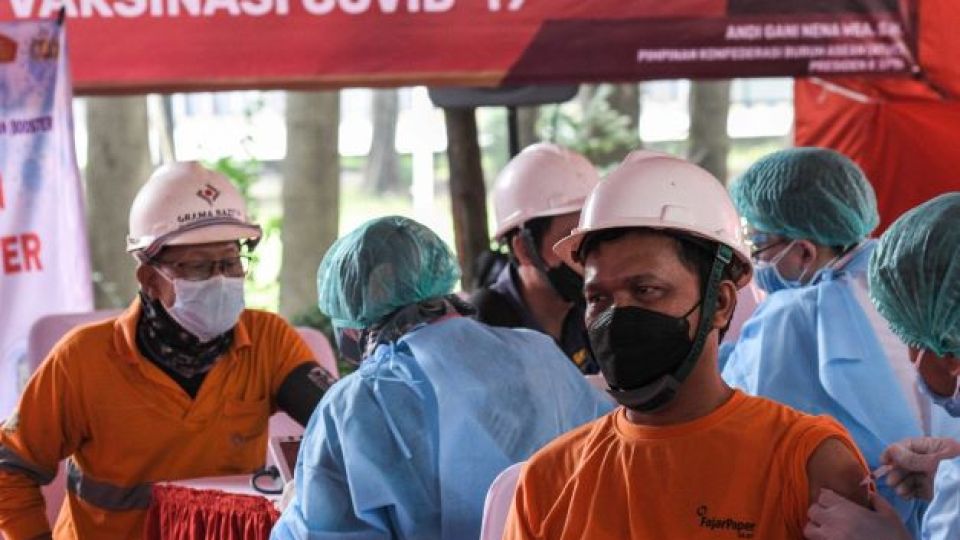April 11, 2022
JAKARTA – Holidaymakers who want a trouble-free Idul Fitri journey will need a COVID-19 booster shot. Why? Because starting from April 5, travelers who have received a third shot can skip some COVID-related protocols during their mudik (going home) trips.
To avoid the spread of new SARS-CoV-2 variants, the government has included a booster shot into its existing vaccine mandates for mudik travelers. Amid the worst surge in COVID-19 cases, travelers run the risk of encountering new infections.
The new travel policy requires anyone who has received their first jab to take a polymerase chain reaction (PCR) test no more than 3 days (72 hours) prior to departure. Those who have been fully vaccinated need to take an antigen test before traveling.
Travelers can bypass testing requirements if they present proof of a booster. With an estimated 80 million people expected to join the Idul Fitri exodus in the coming few weeks, random check is the most feasible measure to enforce the policy.
Transportation Minister Budi Karya Sumadi said on Wednesday the government does not prohibit homebound travels before Idul Fitri as long as the holiday revelers have received booster vaccines. In the government’s mind, mudik will incentivize people to take a third vaccine, which is a good strategy.
Actually, since January of this year, the booster vaccination coverage has increased consistently. It now stands at 9.52 percent of the Health Ministry’s target, or up by about 15-fold within three months, according to the official data. The figure is forecast to increase further, thanks to the new Idul Fitri travel policy.
People’s enthusiasm to get a booster shot, however, may enable more island-to-island travel, which could in turn increase virus transmission.
COVID-19 Task Force spokesperson Wiku Adisasmito acknowledged the government is seizing the Idul Fitri momentum to push for booster shots, saying they could slow down transmission of new strains. Some provinces have in fact reported a sharp increase in booster coverage, with Bali billed as a success story for raising its coverage level to 52 percent today from 32 percent last month.
Certainly, the new travel policy will bring the government closer to its booster coverage target, but on the other hand, it raises questions about the country’s COVID policy consistency. In just less than one month, the government has already revised the policy.
The previous policy issued on March 8 stated that travelers who had received two vaccine doses or gotten a booster would be exempted from COVID-19 tests. Anyone who had only received their first vaccine could not travel unless they tested negative prior to departure.
It is very understandable that due to the worst surge in COVID cases the government has quickly changed its strategies. We should praise the government’s effort to expand booster coverage through the new policy as new SARS-CoV-2 variants are emerging. Booster shots have proven to protect people who have become more susceptible to infections because of decreasing immunity.
It may require some time for us to see whether the new travel rule is effective in motivating people to get their booster jab. But one thing is for sure, changes in policies will confuse the public. The government may not win people’s confidence in the benefits of booster doses unless the policy is communicated in a clear and consistent manner.


